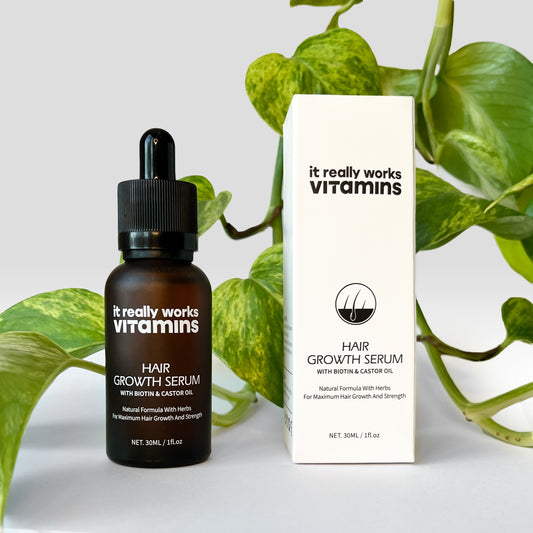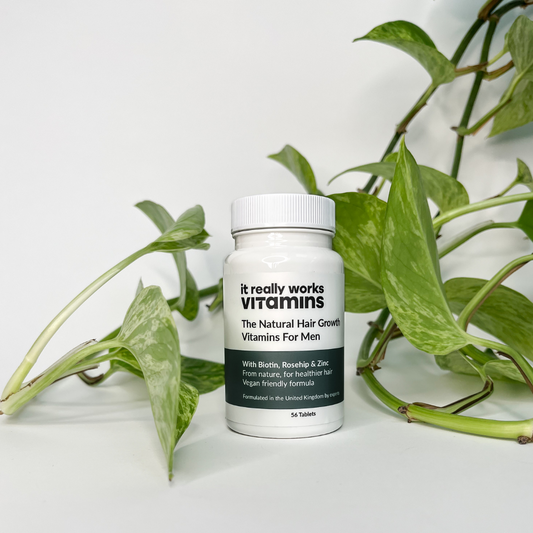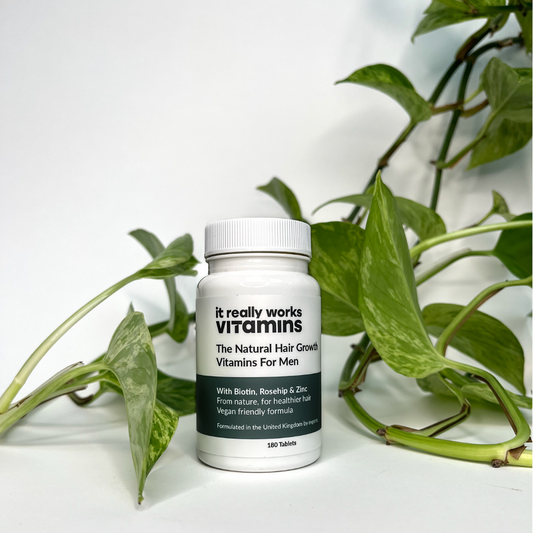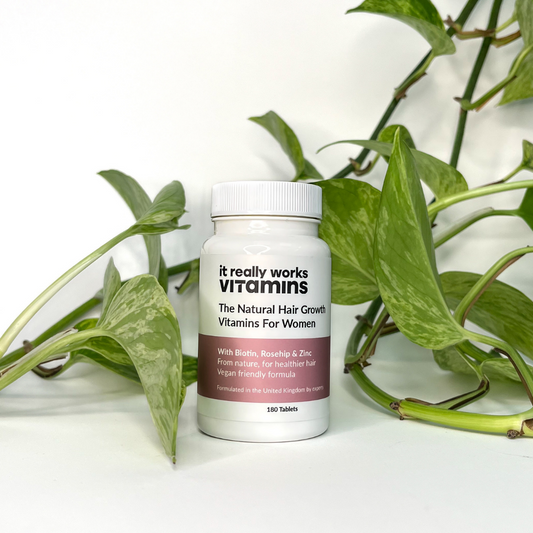22 Essential Nutrients for Thick, Strong Hair
The Ingredients
Biotin or vitamin H is part of the complex of B vitamins and it really answers the question of how to make hair grow faster! The “H” in Vitamin H comes from the German words “Haar und Haut” which means “hair and skin”. Biotin contributes to the maintenance of normal hair and skin, this vitamin also contributes to a normal energy-yielding metabolism, normal psychological functioning and the normal functioning of the nervous system.
This U.S. study has found that Biotin promotes hair growth in those suffering from thinning hair.
Biotin travels in the bloodstream and excess or unused quantities are eliminated in urine. This means the body does not build up reserves of Biotin, you have to ingest it daily.
Copper plays “an important role in maintaining healthy skin” says dermatologist Joshua Zeichner, director of cosmetic and clinical research at Mount Sinai's Department of Dermatology in New York. “It helps to develop collagen and elastin, which maintain the strength of the skin, and it promotes the production of skin-plumping hyaluronic acid”.
In order to enjoy the health benefits of copper, it must be included in the daily diet, as it is used up in daily bodily processes.
Folic Acid is the synthetic form of folate, one of the B-vitamins. This micronutrient helps the body break down fats, proteins and carbohydrates into usable forms of energy. It helps form red blood cells and create new DNA.
Women have long been encouraged to take folic acid when trying for a baby, but Folic acid may also improve men’s chances of fathering a child, The Guardian reports. A new study has found “a link between high levels of the nutrient in men’s diets and the genetic quality of their sperm,” the newspaper says.
Inositol is a naturally occurring glucose isomer and is known to contribute to the maintaintence of healthy hair. Inositol deficiencies can result in hair loss.
Iodine contributes to the normal production of thyroid hormones and normal thyroid function which in turn helps to regulate the body's energy production, promote growth and development and help burn off excess fat. Iodine contributes to the maintenance of normal skin and hair. Iodine deficiencies can also result in hair loss.
A review of 40 years of research shows that iron deficiency has a much closer link to hair loss than most doctors realize. It may be the key to restoring hair growth, Cleveland Clinic dermatologists have found. George Cotsarelis, director of the University of Pennsylvania Hair and Scalp Clinic, has studied iron supplementation in women with various forms of hair loss. “From our clinic's experience, it is clear to me that if you replenish hair-loss patient's iron stores with iron supplements, they are more likely to regrow hair, or at least stop hair shedding” Cotsarelis explains.
Manganese contributes to the protection of cells from oxidative stress, the normal formation of connective tissue, the maintenance of normal bones as well as a normal energy-yielding metabolism.
Para-aminobenzoic Acid (PABA) is a member of the B vitamins, and is part of the folic acid molecule. PABA supports folic acid production by the intestinal bacteria. PABA helps to maintain healthy skin, hair pigment as well as intestinal health. It is known specifically for its nourishment to hair and its usefulness as a sunscreen.
Rosehip also known as rose haw or rose hep, is the fruit of the rose plant. Rosehip is one of the richest sources of vitamin C, a powerful antioxidant often used to heal and protect skin.
Selenium is a trace mineral which contributes to the maintenance of normal nails and hair. This mineral also contributes to normal thyroid function, normal spermatogenesis (the process of formation of spermatoza). Selenium contributes to the protection of cells from oxidative stress.
Vitamin A also known as Retinol is effective because when absorbed into your skin, it is broken down and converted into retinoic acid. Retinoic acid is the compound that actually can affect skin cells and their behavior. Vitamin A helps to maintain normal cell growth and replenishment and contributes to the maintenance of normal skin.
Vitamin B complex - B vitamins are always found grouped together in foods, this includes seven vitamins: B1, B2, B3, B5, B6, B9 and B12.Water-soluble B vitamins nourish cells, helping to maintain normal skin, hair and nails.
Vitamin B2 (Riboflavin) contributes to the maintenance of normal skin. Its functions include keeping skin, eyes and the nervous system healthy and helping the body release energy from the food we eat.
Riboflavin cannot be stored in the body, so you need it in your diet every day.
Vitamin C helps the body to build collagen - a protein that is the main connective tissue in skin and a key component of hair. Vitamin C also contributes to maintaining the normal function of the immune system during and after intense physical exercise and contributes to the reduction of tiredness and fatigue.
Vitamin D helps to maintain healthy hair. It helps the body to absorb calcium which helps in the secretion of hormones, such as biotin.
A number of prominent scientists and dermatologists believe that vitamin D can play a vital role in preventing hair loss as well as fostering hair growth.
Studies in animals have also found that consumption of vitamin D3 and its analogs can stimulate hair growth.
Vitamin E contributes to the protection of cells from oxidative stress.
Zinc contributes to the normal metabolism of vitamin A as well as the the maintenance of normal skin and nails (white spots on the nails may reflect a lack of zinc). Mild acne may respond to zinc supplementation. Zinc is easily lost in sweat (during exercise) and is used in greater amounts under stress and so you have to ingest it daily.
* Disclaimer: Results may vary
Try Our Natural Hair Care
-
 SaleSale
SaleSale -
 Sold outSold out
Sold outSold out




